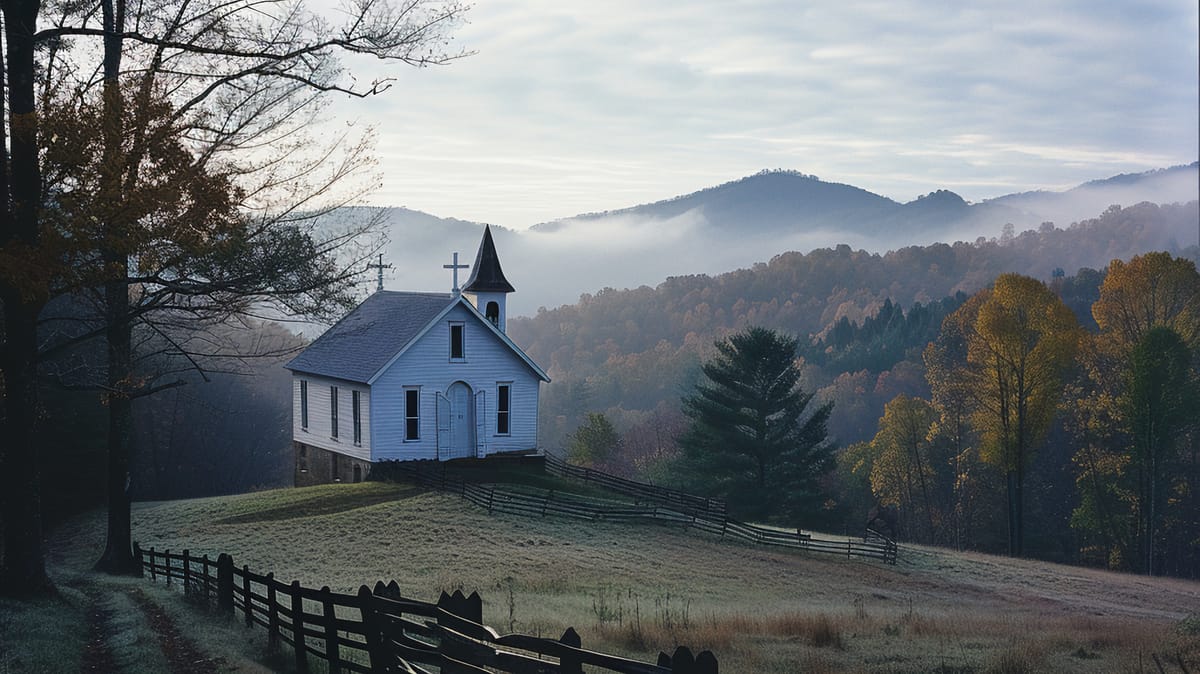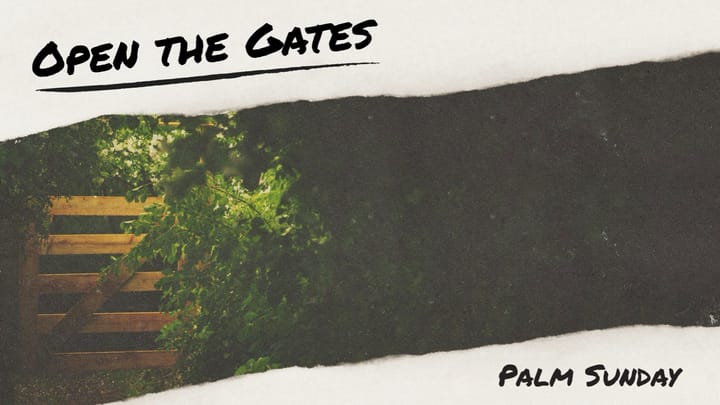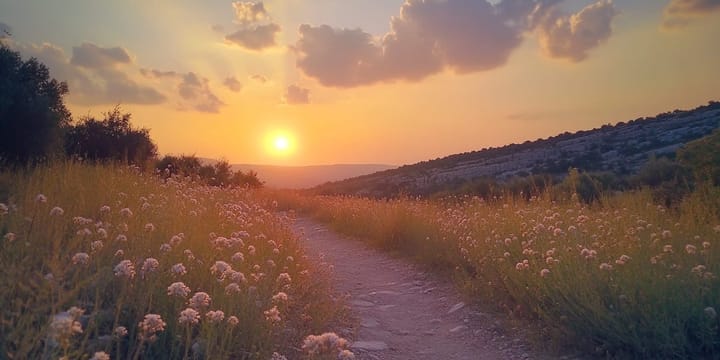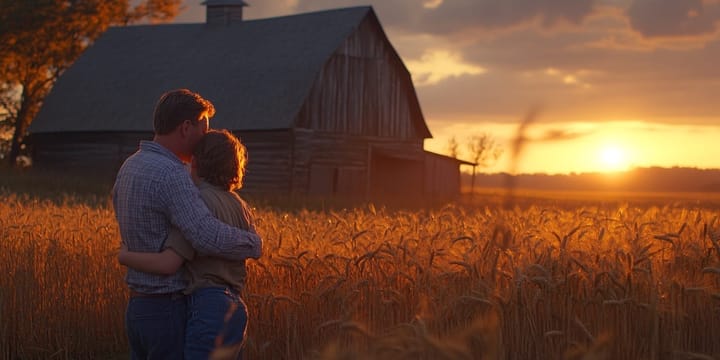Fairhaven Sermon 3-3-2024
Rev. Dylan Parson reflects on his transformative pastoral internship in small North Carolina churches, emphasizing the crucial interplay of faith, community, and service in shaping his ministry.

In this week's sermon, Rev. Dylan Parson reflects on his formative summer as a pastoral intern across three small churches in North Carolina, emphasizing the profound lessons learned in community, faith, and service before his seminary studies. He vividly describes his experiences, particularly at Pleasant Valley, a tiny church in the village of Meat Camp, to highlight the simplicity and authenticity of worship in rural settings. Drawing on the Gospel of John's account of Jesus cleansing the temple, Rev. Parson challenges the congregation to consider the true essence of their faith and the church's mission. He critiques the often petty conflicts within churches and urges a focus on justice, mercy, and holiness, inspired by Jesus' actions. Through personal anecdotes, including a compelling chapel service at Duke Divinity School, Rev. Parson calls for introspection on what genuinely matters in Christian service—caring for the marginalized and embodying Christ's love and justice, urging a reevaluation of priorities to align with the heart of Jesus.
Transcript
My first summer out of college, a lot of you have probably heard this before, but before even beginning seminary, Duke invited me to spend that summer as a pastoral intern. So I started my interning before I even began seminary, which is very brave on behalf of those churches and the seminary. And I'm really grateful that I did that because it was a reminder that I could hold on to once I started school again in the fall as to why I was doing all this to begin with. Why was I going to get another three years in school to get another degree? Because I love the church.
And so it was a real breath of real world fresh air, right, that made a perfect bridge between one academic degree, I was being in school, and then being in school again. I got to be out in the world. But the best part for me was where they put me. It was kind of like how the Methodist system works.
You apply for an internship and then they plop you somewhere in North Carolina or around the country. And I served the summer at three small churches. The smallest had about 12 on a Sunday, and the biggest probably in the mid 30s. And they were scattered more or less in a line following the New River in western North Carolina.
There, the river is still just this medium sized creek. It's hundreds of miles before it forms the famous New River Gorge in West Virginia. It's hard to imagine that this little creek, which is like Sawmill Run, somehow carves this canyon a couple hundred miles later. And so I was way up in the Blue Ridge Mountains, outside the mountain town of Boone.
Everyone goes to Asheville, go to Boone. Boone is wonderful. And to this day, it is one of the most beautiful places that I've ever been, one of my favorite places in the world. I love the Blue Ridge.
That smallest church of the three, which was always the first one on a Sunday morning, I think it was 830, we had to hit the next one at 10, and the last one was at 1115. The first one was called Pleasant Valley. That was the smallest one. And Pleasant Valley was a weird name for it because it was about three quarters up the side of the mountain that forms the border with Tennessee.
There was no valley to be seen. And this church was just this prototypical country's church to the point where it was pretty much just a one room schoolhouse. Whenever we'd have any social events or potlucks or whatever, they'd have to always be outside because there was literally no room in the church. And Sunday school would start right after the pastor left to go to the next church.
And what they would do for Sunday school, because there is no Sunday school room, the lay leader would pull out a folding ironing board, plop it in the middle of the aisle, lay out his Bible and his curriculum and teach from that for the day. But as I said, this tiny church, which was most of the way up the side of a mountain in a tiny village, and this village called Meat Camp, it wasn't a real town. It didn't have a mayor or a government or anything. It probably had a couple hundred people.
They were all related. This village had five or six churches. And it started at the bottom of the mountain. You turn off the highway, it kind of heads up the mountain.
And the first church was a Baptist church. Then another mile or so, there's another Baptist church, I think the missionary Baptist church. Then another Baptist church, maybe a mile further, then an apostolic/Pentecostal church most of the way. And then the Methodist church was the last one, just a couple hundred yards further up.
And I was told, and forgive me if this is not the precise history, but this is what I was told. Essentially all of these churches have roots in one another. So there'd be some sort of conflict, you know, a theological conflict maybe, but more likely a family feud, some kind of power struggle. And one group from one church would walk out and start another church right up or down the road, right? And this tends to be a really common thing among Baptists especially, because there's not really tight denominational ties.
And one church split, this is true across history, one church split tends to open the door to like more and more and more. They just keep going. You'll notice the churches that are broken away from the UMC, for example. I mean, no one's breaking off of that yet, but they cut out the part of the Book of Discipline that keeps you tied to a denomination.
Like one split loosens and more splits happen. And so I always thought it was so funny driving past all of these churches to get to Sunday service when probably none of them had more than 30 people. And they probably weren't that big when they split either. But congregations are prone to conflict that can become nuclear, right? And in many situations, not all but many, there's narcissism, there's pride at play, far more than any like actual Christian reason.
It's a classic joke among pastors, among longtime churchgoers, that the very worst fights in churches are over like the color of the new sanctuary carpet, not like the doctrine of baptism or communion. It's never the big stuff, right? And we all know that we're far more inclined to spend time litigating hymn choices or aesthetic preferences than whether or not we're making disciples of Jesus. Which one of those things do you think occupies more time and energy among us? And so compare the reality of how we as the church actually behave with the image of Jesus that we see in this morning's gospel reading in the temple. John writes, His disciples remembered that it is written, 'Passion for my Father's house consumes me.
' Jesus as he takes a whip to merchants and money changers and cows and doves and flips the tables is fighting for holiness, fighting for justice, for the will of God, not like personal preference or power. He's fighting for what's right. People were turning a profit in the temple. This is important context here.
They met the needs. The reason their merchants were in there is they were selling the animals to the Jewish pilgrims that came from afar so they could make sacrifices. They sold the animals right there. And they created this one-stop shop.
You buy your animals, you sacrifice them. And that might make sense from a business perspective, but it was defiling God's house by making it a market. And the money changers, like currency exchange, whenever you go to another country, right, they would regularly exploit the Jewish peasants. They needed their service so they could buy the animals to offer the sacrifices.
These merchants, these money changers had a captive market. You had to use them if you were going to go see God, sacrifice to God in the temple. They could charge whatever they wanted. They could do some funny numbers with the exchange rates.
Maybe you give them some foreign currency and they give you a little bit less of Roman currency. And biblical scholars point out that it was actually way worse than that. There was much worse business going on than that in the temple. So the temple by Jesus' time, in addition to being God's house, was really functioning as a bank.
The temple received an enormous amount of money. There was a temple tax in Judea that the Romans collected. And the temple would lend that money to the poor whose land was in danger of being taken by the rich. And whenever those poor farmers failed to pay back their loans, they'd get foreclosed upon.
Their land would be repossessed. They'd lose their homes and their farms. The temple, God's house, had developed this side business of really harming people, of literally taking their houses out from under them. It was like the temple had become, you know, Bank of America during the recession, right? It's a really gross way for the temple to behave.
But as far as the temple leadership is concerned, the religious elite, the high priests, the aristocrats that collaborate with Rome, none of this is a problem. They don't even see it as a problem. They've begun to chase this mirage of prosperity, of power, of security within the Roman state. They lose sight of God's righteousness, God's holiness, the whole reason that they're there.
And this just becomes business as usual. This is just the background noise, all this banking, all this exploitation. So what's the big deal, Jesus, when he gets there and starts throwing things around? The religious authorities are not bothered by the flow of gold and silver and real estate, the casual exploitation of faithful Jewish worshipers, but you better believe they're pretty upset about those tables being tipped over. The temple leaders are enraged when Jesus starts flipping things around.
He says, By what authority are you doing these things? the priests say. They're grilling Jesus, but they can't remotely see that what they're doing is the offense to God, not the flipping of the tables. They want him to show them a sign. And the sign is that he's already taken his authority that the Father gave him, that he's cleansing the temple that belongs to him.
The sign is God is in the temple swinging a whip around. But Jesus answers and he speaks right over their heads. He says, Destroy this temple and in three days I'll raise it up. You want a sign? Three days.
He's referring to himself, John tells us, his authority, his power is in who he is as the Son of God. He doesn't have to show them anything. He is who he is. He knows the law.
He knows holiness. He knows righteousness. He knows justice because he doesn't just know it. He is it.
So I wonder, envision Jesus standing among us in this place. Are we actually adequately focused on the holiness and righteousness and grace of God? Or do we tend to miss the forest for the trees? Does the potential of a flipped table, so to speak, of upsetting the order of things, of disrupting the peace, offend us more than falling short of God's vision for justice, mercy, holiness? What are those sacred tables here? I'll tell you thinking back to that line of churches going up the mountain. There is no way, zero, that every one of those church splits was over something fundamental to the heart of Jesus, that there had to be a break. That wasn't the case.
Some sort of very human power struggle or conflict was almost certainly at play, something that very likely had very little to do with Jesus himself, but that's where they planted their feet. And so this is the constant question. Are the things that we are concerned about, most concerned about, the things that Jesus is concerned about? This is a holy place. The church as a whole living body is holy, even though it's easy to lose sight of that in the day to day.
You go to council meetings, you come to worship, you go to UMW, it's easy to forget that this is the body of Christ. And so are the things that Jesus is concerned about, are they even on our radar? Or are we too caught up in our own business to have a meaningful passion for our Father's house like Jesus does? And this is a real question that requires real discernment. You have to keep looking, keep making sure you're aligned to where Jesus is. The temple authorities, who you know are the equivalent of me, of many of us, were very upset that Jesus overturned the money changer's tables.
But they didn't bat an eye at the profit making, the exploitation that was yards away from the sanctuary. And so this story is a challenge for us who are on the inside of the church, all of us. Are we bothered by, are we passionate about the right things? Or do we let things that Christ finds offensive exist right under our noses, simply the way we do business, while we chase mirages, while we prioritize the things that we act like our gods but are really ours? So let me tell you one more story from when I was in North Carolina. This is a couple years later.
This was during Lent, right before general conference, 2018. And this was the year that the United Methodist Church was set to decide its path with regard to LGBTQ inclusion. So the backdrop at Duke, which was, is an overwhelmingly United Methodist seminary, was an enormous amount of anxiety because none of us knew what kind of church we're going to be ordained into. What was going to happen? Would there still be one church? Would we compromise? Would we split? Would the church allow same-sex marriage, the ordination of our gay classmates, or would we clamp down tighter? And this was on top of all kinds of stuff going on at Duke and around the country with racism, especially at Duke.
And so we had chapel in those days, every Tuesday and Thursday, and I tried to make everyone. And I remember vividly that one Thursday in Lent, this was the gospel message, this reading here from John's Gospel of Jesus in the temple. I have no idea who the preacher was. It was a woman.
I don't know exactly what she said. But she talked about God's justice, about God's heart for the poor and oppressed as He cleansed the temple. That it had become so unjust and so callous, so detached from loving the people, from righteousness. And as she preached, she didn't just stay at the pulpit, which was unusual in that chapel.
She slowly walked around the heavy oak communion table. They got a big one. And in the Divinity School Chapel during Lent, you know, most communion tables say, Do this in remembrance of me on the front. They would turn those around to Jesus' words on the cross during Lent.
It would say, I thirst on the front. And as she spoke, as she preached, she just kept calmly moving around the table. And I'd noticed her resting her hands on the glass table top and sometimes putting them under it, seeming to lift slightly upward. And by something like 10 minutes in, something about the way she was preaching and moving had built up such a sense of suspense that I found myself really physically anxious about it.
My heart was beating, you know. I was sure that she was going to flip the communion table. I was sure she was going to flip the communion table. I don't know if anyone else felt it.
I don't know if this was just the me thing, but I was certain she was going to grab hold of that communion table, fling it as hard as she could. The wine, the bread, the purple silk going everywhere. And I was bracing myself the entire 20 minutes of that sermon when at the very last minute she lifted her arms, said, Amen, and sat down. And I swear to you, I have no idea whether she did this all on purpose, if anyone else noticed it, or if the Holy Spirit was challenging me specifically.
Because I found after that service that the Spirit had preached a second sermon entirely to me while I was spending that 20 minutes on the edge of my seat. Why was I so scared that table was going to be flipped? It's like I had understood the scripture that was being preached, really understood it for the first time when the seeming potential of it happening before my eyes emerged. You know, it's one thing to read about it, but to envision that Jesus is coming in here flipping our tables. Now please know that I'm not saying that's a good thing, I don't plan on doing it, right? But would it really have been such a threat to the holiness of God and the righteousness of the church if a wooden table was disrespected? Would God be offended? Or is the real offense the one that she was preaching around? The way we in Christ's church, the way we treat Christ's body in the form of black people, the LGBT people that we were talking about all the time in the UMC those days and now.
Not to mention the poor, people in addiction, all kinds of other marginalized children of God. What offends God more? In that moment as I was envisioning that table flipping over, I realized I had never felt quite so painfully worried about that. And as we look at Jesus, whether he's among a crowd in need of healing, whether he's cleansing the temple from greed and injustice, whether he's hanging on the cross, we know what God is most concerned about. And so what sacred objects, what mirages, what elements of personal power do we cling to at the expense of our ministry as disciples of Christ? What do we elevate over loving people the way Jesus does? Perhaps to the point where we don't even notice that we're doing it.
We can drop all those things. We can decide instead to discern where Jesus is and go there instead. This day I pray that a passion for your Father's house will consume you and that it burns and burns and burns until all that remains is a heart that cares for the things and the people that Jesus cares for with a love so strong that it conquered death. In the name of the Father and the Son and the Holy Spirit.
Amen.


